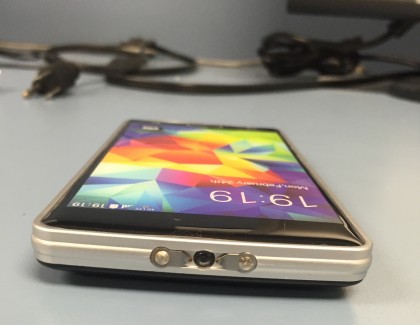To answer the phone or not to answer the phone… THAT is the question!
It seems like every time I look around, there is a new phone scam working its way around the country and our local little community.
From robo-calls to phishing scams to all out crooks claiming to be supporting non-profits, the calls keep rolling in. Even if you are on the “Do Not Call” list, your phone still rings. You’d think it would be easier to weed out fake calls from reals ones. I remember when caller ID was first introduced and we all through the days of telemarketers was over. Now we have savvy computers who can bypass caller ID and trick us into answering.
Ironically, as I was staring this piece, my cell phone rang with a LOCAL number: (508) 737-XXXX … I answered the phone expecting a call from a possible new dog sitter and was told by a recorded voice that my debt could be wiped out by simply pressing 1 on the phone pad! An hour earlier, I had a number pop up that started with (352) 619 – XXXX. I let that one go to voice mail. When I checked back, there was no message.
When you see a local number, this form of scam is called “Caller ID Spoofing”. It’s basically a call that has been placed via the internet rather than a land-line and will show up as a local phone number. The act of Caller ID Spoofing isn’t illegal UNLESS it’s done with intent to defraud or cause damage. Regardless, it’s still annoying.
Other calls seem to come in daily from various numbers around the world. Without a handy list of area codes, how can you tell if a number is legitimate? Honestly, it’s tricky. I have Googled an unfamiliar number while my phone is still ringing before I answer it!
Recently, a few sources, including Inc.com and Consumerist.com have released lists of numbers to watch out for. They seem to be domestic numbers but are, in fact, from some exotic places around the world. Here are a few to watch out for:
473 – This is the popular one which traces to the island of Grenada
900 – This is a classic and has a long history of suspicious calls generating with this number
242 – The Bahamas
284 – British Virgin Islands
441 – Bermuda
671 – Guam
So what do you do? If someone calls and claims to be collecting money for a charity or organization, do not give them any personal information. If they say they are calling from a bank to verify your account, DO NOT GIVE THEM ANY PERSONAL INFORMATION. If there is no one on the line and they hang up DO NOT CALL THEM BACK.
Basically, if you don’t recognize a number, let it go to voice mail. If it’s a real caller, like your pharmacy calling to re-fill a prescription or your neighbor calling about a yard sale, they will leave a message.
If you feel that you were the victim of a phone scam, call your local police right away.
Information from Inc.com and Consumerist.com was used in the writing of this article.
























